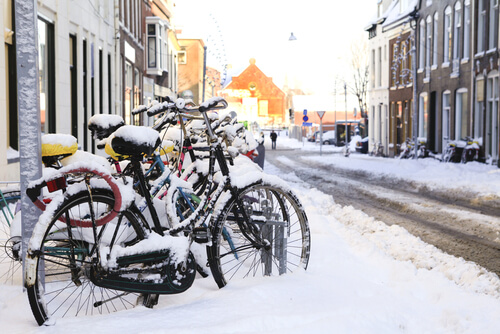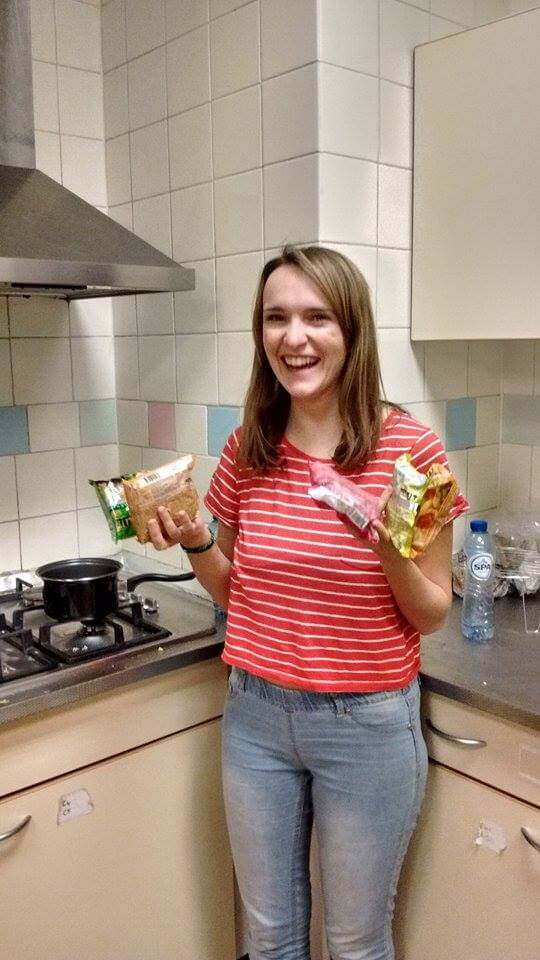Best private schools in France and their cost
Planning to move your family to France and looking for a private school? Check out our complete list of the best private schools in France and their cost.

Anna Blake, Studying at the University of Groningen, Netherlands
As a student, there's one thing we all need but rarely have enough of. I’m talking, of course, about money.
When I decided to study International Law, I was sitting in a tiny hut in Tanzania, dreaming about how I was going to single-handedly save the world by becoming a human rights lawyer. While I haven’t abandoned my goal of working in this field and find it difficult to imagine that I ever will, I have come to realise there are some major obstacles to overcome first.
The first of these is funding my degree and new life in Groningen.

In Britain, it’s practically unheard of to go to university without getting a student loan. Whether from the Student Loans Company, the bank or a relative, a student needs to fund an average annual cost of £22,000 including rent and living costs. I assumed a student loan would just be as easy to apply for in the Netherlands. How wrong I was.
The DUO
The Netherlands provides loans to its students through an executive arm of the national Government’s agency for education, the DUO. This provides those of Dutch nationality with loans to cover education, rent and living costs repayable over a ten year period after your degree. Pretty similar to how student loans work back in the UK. Sounds good, right? I thought so too, until I discovered that this doesn’t apply to foreign students.
I discovered from my demoralised Korean roommate that if you are not an EU citizen tuition fees are over 5 times more expensive. There is no financial assistance whatsoever from the Dutch government (and in some cases their home governments) in helping fund any living costs. This prospect is worrying for me too when you take Brexit into consideration. As it stands, in the final year of my degree I will no longer be a citizen of the European Union. What this will mean in terms of tuition fees remains unclear, but I and many other Brits studying abroad hope some sort of agreement can be reached that will prevent us being isolated from the rest of the continent and its exceptional educational institutions.
Even though the tuition fees are over 4 times cheaper than in England, rent remains the same and living costs are only marginally cheaper than in London. Luckily, DUO does provide some benefits for EU citizens, including loans for tuition fees and an OV chipcard which provides free weekend public transport. The only trouble with this is actually obtaining it.
I had researched the DUO loan before moving to Groningen and it was described as a very simple process: move to Groningen, go to the town hall for a citizen number, then apply for the loan!
My experience was nothing like this. I have been living here for almost four months now and still have not received the loan, despite numerous meetings with the institution. This, alongside my failed attempts to get myself a job- on the grounds that I can’t speak Dutch- means I must depend heavily on my parents, who have four other children to finance in London, not known for its bargain living costs. I’ve also adapted to a stomach churning diet of 30-cent instant noodles and cheap canned food.
So, although studying in the Netherlands is a life-changing experience and cheaper than staying at home in the long run; I urge anyone considering it to save up beforehand to avoid a few months of cardboard-tasting noodles!

Anna Blake is in her first year studying International Law at the University of Groningen.
*Please see terms of use and product availability for your region or visit Wise fees and pricing for the most up to date pricing and fee information.
This publication is provided for general information purposes and does not constitute legal, tax or other professional advice from Wise Payments Limited or its subsidiaries and its affiliates, and it is not intended as a substitute for obtaining advice from a financial advisor or any other professional.
We make no representations, warranties or guarantees, whether expressed or implied, that the content in the publication is accurate, complete or up to date.

Planning to move your family to France and looking for a private school? Check out our complete list of the best private schools in France and their cost.

Planning to move to South Africa and looking for a private school? Check out our complete list of the best private schools in South Africa and their cost.

Planning to move your family to Ireland and looking for a private school? Check out our complete list of the best private schools in Ireland and their cost.

Considering teaching English in Japan? Explore our insightful guide on requirements, teaching programs, job prospects, salary expectations, and more.

Considering teaching English in Taiwan? Explore our insightful guide on requirements, teaching programs, job prospects, salary expectations, and more.

Considering teaching English in China? Explore our insightful guide on requirements, teaching programs, job prospects, salary expectations, and more.